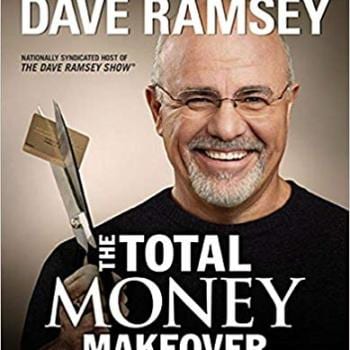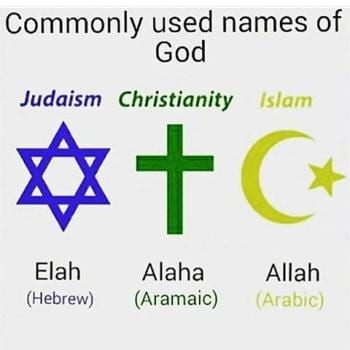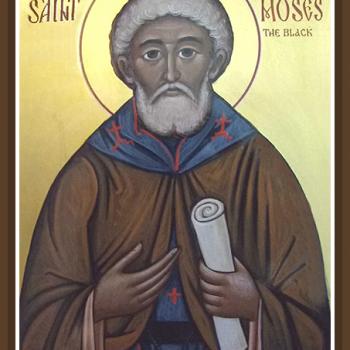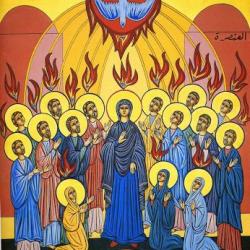 “Do you think it’s time for a New Catholic Apologetics Movement?” asked Scott Eric Alt via Facebook messenger. The question is one I had been mulling for the past few months. Yet I was retired from Catholic apologetics for nearly a decade, whereas Scott is still active and blogging at To Give a Defence. (This and Dave Armstrong’s Biblical Evidence for Catholicism are two sources of Catholic apologetics I still follow regularly as a retired apologist.)
“Do you think it’s time for a New Catholic Apologetics Movement?” asked Scott Eric Alt via Facebook messenger. The question is one I had been mulling for the past few months. Yet I was retired from Catholic apologetics for nearly a decade, whereas Scott is still active and blogging at To Give a Defence. (This and Dave Armstrong’s Biblical Evidence for Catholicism are two sources of Catholic apologetics I still follow regularly as a retired apologist.)
“Maybe,” I replied. “At least within the English-speaking world I feel Catholic apologetics has become too wrapped up in non-essentials.”
One example is a recent book defending capital punishment as irreformable doctrine. This is contrary to the worldwide consensus for abolition that has grown among the last three popes, recent patriarchs, college of bishops, and majority of laity outside of the author’s particular country. In fact, outside the author’s particular country there is no appetite among Catholics for capital punishment
Another example is increased hostility toward Pope Francis and the Church’s social teaching, as chronicled by Mike Lewis and others like myself at Where Peter Is.
But back to the Facebook conversation with Scott Eric Alt. He then popped the obvious followup question: “What would you recommend we do differently in a New Catholic Apologetics Movement?”
In pondering this question, I discerned four areas where I believe Scott and other new Catholic apologists could improve the present state of Catholic apologetics. These four areas are:
1 – Centred Around the Liturgy and the Sacraments
The first area where I believe new Catholic apologists can improve the current state of Catholic apologetics is with refocusing around the Eucharist and Divine Liturgy (Holy Mass). Quoting from the Second Vatican Council’s Sacrosanctum Concilium, the Catechism of the Catholic Church‘s article 1323 states:
The Eucharist is “the source and summit of the Christian life.”136 “The other sacraments, and indeed all ecclesiastical ministries and works of the apostolate, are bound up with the Eucharist and are oriented toward it. For in the blessed Eucharist is contained the whole spiritual good of the Church, namely Christ himself, our Pasch.”
The Eucharist is the source and summit of our spiritual life as Catholics. By source, every grace we receive as Catholics comes through the Eucharist. And by summit, every act of worship or of service that we perform as Christians is directed toward the Eucharist.
This should not surprise us as Christians who believe in the Mystery of Transubstantiation. All areas of theology and Christian practice converge in the Eucharistic liturgy. Remember Christ’s Real Presence is not only that of His body, blood, soul and divinity. It is that of Jesus Christ post-death, post-resurrection and post-ascension into Heaven. It is that of Jesus Christ who sits in glory at the right hand of the Father. Thus every Divine Liturgy or Holy Sacrifice of the Mass makes present Heaven itself here on earth.
Think of the impact this has on all areas of our understanding as Catholics. Our goal as Christians–Eternity in communion with the Holy Trinity–begins here on earth with our participation in the Eucharistic liturgy. For it is through Jesus Christ that we are invited into communion with the Father and the Holy Spirit.
There is much more I could write on this topic (and will in future blogs). However, in light of CCC 1323, should the Eucharist not be the source and summit of a New Catholic Apologetics Movement? Certainly it makes a much more universal and spiritually compelling argument for the Catholic faith than does the legal right of America, China, North Korea and Saudi Arabia to sentence its own citizens to death.
2 – Drop the Term “Protestant”
Nothing causes me to tune out faster from an apologetics argument or essay than the word “Protestant” or its plural “Protestants”. Today we are 500 years removed from the various Protestant reformations. I know many Lutherans, Pentecostals, Evangelicals, and Anglicans. In fact my mother is Presbyterian. Very few of these spiritual descendents of the Reformation still protest Catholicism or the Catholic Church. Certainly for the most part they do not hate Catholics. Nor do most Catholics outside of online apologetics take issue with most Protestants. Most Christians simply practice a form of Christianity in which we were raised and/or discovered spiritual comfort.
As a Catholic who transitioned from apologetics into ecumenism and pastoral theology, I find that current use of the word “Protestant” within Catholic apologetics is often lazy or incorrect. That is, the term “Protestant” is often an attempt to impose a false uniformity. We do not wish to recognize among our Reformation brothers and sisters a wide spectrum of belief. Or it represents refusal on our part to forgive and move on from past controversy or polemic. What is even worse is when one purporting to be a Catholic apologist insists upon coupling “Protestant” with “heretic” (or “Orthodox” with “schismatic”).
Using the term correctly, Protestantism represents a wide spectrum of practice and belief. I know a Presbyterian minister who prays the rosary daily. A Baptist minister once invited me to teach his congregation how to properly interpret Byzantine icons. I have delivered lectures on Eucharist ecclesiology to a respected Evangelical graduate seminary. A group of respected Pentecostal ministers once invited me out to discuss theology over craft beer special coffee. Because there is no Anglican or Missouri Synod Lutheran church nearby, it is not unusual for Christians from these two denominations (including ordained ministers) to worship in our Catholic parish when visiting our community. One of our local Evangelical chaplains enjoys dropping by at the charismatic prayer group as well as the Latin Tridentine Mass hosted at the local Roman Catholic parish.
Thus the idea that our Protestant brothers and sisters todays still “protest” the Catholic Church is simply holding on to old stereotypes. A New Catholic Apologistics Movement
3 – Explanation vs Debate
“Apologetics has earned such a bad reputation that I now feel forced to make an apologetic for apologetics before any pastor will allow me into their church,” said my friend Michael over coffee. Mike is an Evangelical Baptist finishing his Master Degree in Christian apologetics. Locally he enjoys a well-earned reputation as one of the most skilled Christian apologists from a Protestant tradition.
Before our schedules took us in different directions, the two of us would gather monthly for coffee. We seldom discussed theological differences between our respective Christian traditions. More often than not, the conversation revolved around how best to carry out Christian apologetics in today’s secular culture. We did not always agree, and often theological differences entered the discussion as well, but our conversations always proved fruitful.
Why?
Because Mike and I recognized in each other a fellow brother in Christ. Our default stance toward each other was discussion and explanation. It was never one party attempting to dominate the other through difference and debate. We both realized that infighting and disrespect among Christians will often cause others–especially young people–to turn away Christianity completely.
Too often we as Christians think of heated debate, online flame wars, and heresy hunts when the word “apologetics” is raised within a Christian context. For many, apologetics has become the online theological equivalent of professional wrestling. Now I disagree personally. As a retired Catholic apologist moonlighting as a professional wrestling referee, I find professional wrestling much more disciplined and cooperative.
The original definition of the word apologetics is as follows: “A reasoned defence of the Christian faith.” Defence here does not mean to argue one’s opponent into submission, or to intentionally cause offence. (Two apologetics sins of which I am often guilty myself). Rather it means to explain the faith as reasonable in both practice and belief. If one has given a reasonable explanation and the other still does not accept it, then it is time to move on.
4 – Active Within the Local Church, Subject to the Bishop
Canonist, catechist, lay parish administrator, pastoral associate, ecumenist, reader, Catholic apologist–these are all functions and responsibilities I have carried out within the Catholic Church, both Eastern and Latin. With one exception, each required a Church mandate from the bishop or pastor upon completion of formal education and a period of supervised training. With one exception, each required that I fulfill my duties within the local parish or diocese.
The one exception for both is Catholic apologist. Without any formal training or mandate from a lawful Church authority, I became known as a Catholic apologist. How? By calling myself a Catholic apologist both online and in print. (Ironically, it was years after I retired from Catholic apologetics that my new bishop surprised me with a mandate for Catholic apologetics.)
Catholicism is a living expression of the Catholic faith. This is why we are subject to living pastors in the form of our local bishop as successor to the apostles. Like catechist, reader, and other offices or apostolates filled by laypeople, I believe apologist should be a calling by one’s bishop in cooperation with the local pastor. Similarly, I believe each parish and diocese should have apologists who are subject to the local pastor and to the diocesan bishop.
While apologetics is an important apostolate within the Church, it should be subject to the Church, and it should be carried out in cooperation with other local ministry and apostolate.











